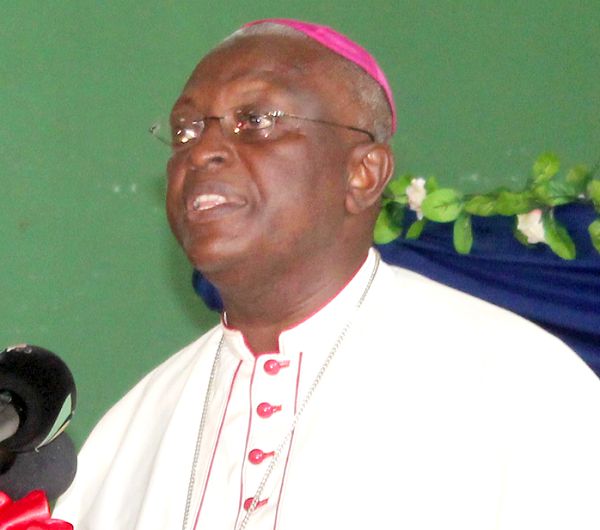
Mission hospitals face power disconnection; they owe between GH¢3,000 and GH¢3m
About 51 mission hospitals across the country are faced with the threat of being disconnected from power supply because they owe electricity providers.
Some of the health facilities, which are members of the Christian Health Association of Ghana (CHAG), owe electricity providers between GH¢3,000 and GH¢3 million, a situation which has already resulted in the disconnection of power to some of the facilities.
According to CHAG, the debt owed the Electricity Company of Ghana (ECG) and the Northern Electricity Distribution Company (NEDCo) had come about because of the delay in the payment of National Health Insurance Scheme (NHIS) releases, which had been in arrears for more than nine months.
The Catholic Bishop of Koforidua, the Most Rev. Joseph K. Afrifah-Agyekum, in an exclusive interview with the Daily Graphic, said it was “unprecedented in the history of the country for a state institution to disconnect power to a hospital”.
“To me, it is a national disaster of massive proportions, a national siege and a virtual death sentence on the people in those areas, perpetrated by state institutions,” he said.
He, however, expressed his conviction that the government did not endorse such an act by those he described as “uncover-enthusiastic officers”.
Context
The Bishop, who is the immediate past Spokesperson on health matters for the Ghana Catholic Bishops Conference (GCBC), was speaking on recent developments in some health facilities under the CHAG which are currently faced with threats or actual disconnection of power.
NHIS
He blamed the indebtedness of the health facilities on the exclusion of utilities from the NHIS tariff structure and the withdrawal of electricity subsidies.
He appealed to the government to direct the utility companies to immediately suspend the disconnection exercise and call for dialogue among it, the CHAG and the power distributors.
"In the meantime, we can insulate them from these disconnections because of the essential services they provide, while we engage in the dialogue," the Most Rev. Afrifah-Agyekum proposed.
Death sentence
He said even though the facilities were classified under subvented organisations, the power distributors continued to charge them commercial rates, making it impossible for the former to pay.
Describing the disconnections as "rampant and reckless", he said stopping power supply to health facilities amounted to passing a death sentence on the vulnerable and underprivileged in society.
Threat to lives
The Most Rev. Afrifah-Agyekum explained that the disconnections were not only a threat to lives and a potential source of compromise of the efficacy of drugs and medicines but also a public health risk, as even the dead bodies being preserved in the various morgues relied on power to remain in good condition.
He posited that even in war situations, rebels and those engaged in the fighting often protected health facilities from frontline attacks, “how much more when the country is preparing feverishly to contain the outbreak of the coronavirus disease (COVID-19)?”
NHIA
He contended that even though most of the facilities had appealed to the NHIA to redeem their NHIS claims, "even when these claims are paid in full, the facilities cannot clear their indebtedness to the power producers".
He stressed that NHIS claims submitted for reimbursement were not meant to be used to pay utility bills but to procure medicines and consumables for the hospitals.
Dialogue
“We cannot and do not have the capacity to pay the ECG and the NEDCo on the accumulated bills and we don’t know how to handle the situation,” he pointed out.
The Most Rev. Afrifah-Agyekum, therefore, called for a dialogue on energy availability, sufficiency and sustainability for the provision of health services, adding that it was critical to ensure that health facilities got uninterrupted power supply.
No exemptions
When contacted, the ECG explained that it could not exempt any consumer from paying for the use of power "because we have to account for any power consumed".
Alternatively, it advised CHAG to contact the government, through its sector ministry, for consideration, such that the bills would be presented to the facility and the facility would, in turn, submit same to the ministry for payment.
The Head of Public Relations at the ECG, Mr William Boateng, who spoke with the Daily Graphic, explained that "until then, we cannot categorise the facilities as essential that will not attract billing. Once the power is consumed, it has to be paid for".
He insisted that those not categorised under "clearing house" were considered as normal consumers and not essential service providers.
Prior notice
Speaking on the regulations of the Public Utilities Regulatory Commission (PURC), he was emphatic that all the facilities in question were notified, adding that all of them were given their bills for the previous month and they were expected to pay by the end of the following month.
Mr Boateng asked the administrators of the hospitals to be proactive "by visiting our offices within their jurisdictions to negotiate with us, instead assuming the posture of being untouchable".
Negotiations
He said the way forward was for CHAG or the respective facilities to negotiate with the ECG on payment schedules and not to assume that all was well because they were essential service providers.
"If they think that they are doing something extraordinary for Mother Ghana, then they should appeal to the government, through the Ministry of Health, for consideration," he advised the facilities.
He said ordinarily, the ECG would have changed all postpaid meters to prepaid, "but we are considerate because we are a Third World country and that is why we still allow most of the health facilities to run on postpaid".
